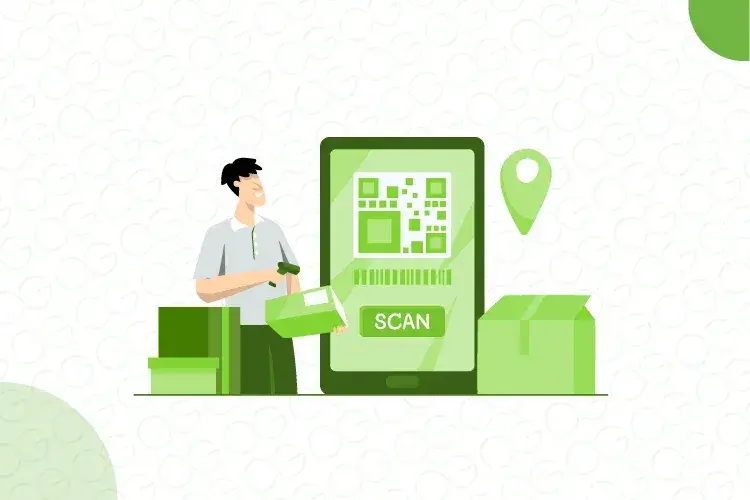10 POS Challenges for D2C Brands
In recent years, Direct-to-Consumer (D2C) brands have been undergoing a significant transformation driven by retail POS software. By cutting out traditional middlemen and selling directly to consumers, these brands have gained significant traction. Established brands like Aditya Birla, ITC and HUL are now jumping on the D2C bandwagon to activate direct relationships with their customers. In 2023, Nike generated 36.8% of their revenues from D2C sales worldwide. The rise of digital marketing and e-commerce store-front platforms has fueled this shift, enabling even small brands to reach a global audience with relative ease. As consumer preferences continue to shift towards personalized shopping experiences and high-quality products, the appeal of D2C brands is only expected to grow.
However, many D2C brands are now also targeting the offline customer with offline brick and mortar stores. In this environment, the lovely website is of little use, a fast, efficient, robust point of sale machine and POS software is more critical. In this context, it's important to explore the common POS challenges that D2C brands face with their Point-of-Sale systems.

Overcome POS pitfalls! Experience the efficiency of Ginesys POS for D2C Brands
POS Challenges for D2C Brands
1.Integration with E-commerce Platforms
- Challenges in Synchronizing Online and Offline Sales Data: D2C brands often face difficulties in synchronizing sales data across various platforms. Inconsistencies can lead to inaccurate reporting, inventory discrepancies, and missed sales opportunities.
- Incentivizing Store Staff for Online Order Fulfilment: McKinsey surveys show that 46% of customers abandon shopping carts due to long shipping times, and 34% consider long delivery times as a key reason to shop in-store. Most online orders get cancelled if they are not shipped within 24- 30 hrs. With omnichannel fulfilment becoming the norm for D2C brands, i.e. fulfilment from a store near the customer, POS solutions must accelerate order fulfilment. D2C brand owners must encourage their store staff to fulfil online orders on time as store people may feel that this is not their job.
- Challenge of Order Splitting for Enhanced Efficiency: With omnichannel being a new order of business, it is even more imperative to incorporate order splitting in your fulfilment logic between various retail stores to ensure maximum order fill rates.
- The Complexity of Managing Inventory Across Multiple Channels: D2C brands must navigate the complexities of managing inventory online and offline. This includes strategizing inventory distribution and knowledge about inventory stocks. There is of course the primary requirement to sync up the product catalog, pricing, offers, taxes and also have a combined single view of inventory across all sites.
- Maintaining Real-time Visibility of Inventory Levels Across Multiple Channels: Real-time inventory tracking is essential to prevent sales losses and maintain customer satisfaction. The POS software that works for omnichannel D2C brands should be able to publish its inventory levels in real-time to the ecommerce order management system or to the brand webstore.
2.Real-time Data Synchronization
- Need for Real-time Data Updates for CX: Accurate sales and inventory data are vital for ensuring a great customer experience and for internal coordination as well.
- Issues with Data Lag and Its Consequences: Data lag can lead to discrepancies in inventory levels, missed sales opportunities, and poor customer experiences.
- Maintaining Data Consistency Across Distributed Systems: Consistent product and customer data across all systems and channels is crucial for operational efficiency. D2C brands must address challenges related to data consistency to ensure seamless operations and accurate reporting. This makes it imperative for the POS to be able to pull customer and order information from the webstore.
3.User-friendly Interface
- Challenges with Complex or Outdated Interfaces: Complex or outdated POS for D2C brands interfaces can hinder staff performance and lead to inefficiencies.
- Understanding User Needs: Understanding the needs of POS users, including in-store staff and customers, is another challenge faced by businesses.
4.Customer Data Management
- Collecting and Utilizing Customer Data for Personalized Experiences: The challenge lies in balancing data privacy concerns with delivering hyper-personalized customer experiences effectively.
- Creating Single Customer Profile with Online and Offline Transactions: The challenge lies in seamlessly integrating online and offline transaction data to create a unified Single Customer Profile (SCP).
- End-to-end Management of Customer Data and User Experience: Managing customer data throughout the entire customer journey is essential. However, D2C POS solutions ensure the right use of vast volumes of customer data to design effective marketing strategies.
5.Payment Processing
- Handling Multiple Payment Methods: D2C brands must accommodate a variety of payment methods, including credit cards, mobile payments, and digital wallets at their store as well.
- Ensuring Payment Security and Compliance: Maintaining compliance with Payment Card Industry Data Security Standards (PCI DSS) is crucial for protecting customer data and avoiding hefty fines.
- Security and Fraud Prevention: POS for D2C brands is a frequent target for cyberattacks leading to financial losses, data breaches, and operational disruptions.
6.Scalability
- Challenges in Scaling POS Systems: As D2C brands grow, their POS systems must scale to handle increased transaction volumes and new locations.
- Technical Challenges: Scalability involves upgrading hardware, software, and networks. Brands must ensure that their technical infrastructure can support business growth.
- Financial Challenges: Investing in scalable infrastructure can strain financial resources. Effective cash flow management and securing investment for necessary upgrades are critical to avoid disruptions and support for sustained growth.
7.Omnichannel Experience
- Providing a Consistent Customer Experience: D2C brands must deliver a seamless customer experience across all channels, including online, in-store, and mobile.
- Integrating Online, In-Store, and Mobile Shopping: Achieving true omnichannel integration requires advanced technology to unify disparate systems.
- Technology Integration: Integrating POS for D2C brands with other platforms, such as e-commerce sites and mobile apps, presents technical challenges.
8.Omnichannel Marketing
- Creating Cross-Channel Offers: Effective omnichannel marketing involves creating promotions that span online and offline channels.
- Incentivizing Offline Stores: Incentivizing offline stores poses the challenge of bridging digital rewards with traditional customer engagement strategies effectively.
- Maintaining Price Parity: Discrepancies and inconsistent pricing across online and offline channels can lead to confusion and dissatisfaction, so brands must carefully manage and monitor pricing.
9.Technical Support and Maintenance
- Importance of Reliable Technical Support: Downtime can lead to lost sales and frustrated customers, so brands need prompt and effective support to resolve issues quickly.
- System Downtime and Reliability: System downtime poses a critical challenge to maintaining reliability and uninterrupted service delivery by POS for D2C brands.
- Security and Compliance: Maintaining robust security and compliance measures presents an ongoing challenge in safeguarding sensitive data and meeting regulatory standards.

Ginesys POS – A Comprehensive Solution for All POS Challenges
Today, effective POS for D2C brands is crucial for success. Ginesys stands out as a comprehensive solution to tackle challenges faced in the POS environment. It offers a blend of innovation, reliability, and scalability.
- Seamless Integration and Unified Platform: With Ginesys’ solution, seamless integration across various retail operations, providing a unified platform for POS for D2C brands is possible. This integration ensures that data flows effortlessly, minimizing errors and maximizing efficiency.
- Enhanced Customer Experience: The focus is on enhancing the customer experience. With features such as real-time inventory visibility and personalized promotions, Ginesys enables retailers to deliver a tailored shopping experience.
- Robust Inventory Management: Inventory management is a cornerstone of retail POS software, and Ginesys excels in this area. From real-time stock updates to automated replenishment alerts, the system empowers retailers to optimize their inventory levels, reducing carrying costs.
- Analytics and Business Intelligence: Data-driven decision-making is made possible with Ginesys' robust analytics and business intelligence tools. By generating actionable insights from sales data, customer trends, and operational metrics, retailers can make informed decisions.
- Scalability and Flexibility: Whether a small boutique or a large chain, Ginesys scales effortlessly to meet the needs of any retail environment. It allows retailers to add functionalities as their business grows, ensuring that the solution remains flexible and adaptable.
- Security and Reliability: Ginesys prioritizes the protection of sensitive customer and transaction data. With built-in security features and compliance with industry standards, retailers can rest assured that their POS for D2C brands is secure and reliable.
- Support and Training: Ginesys is not just a product but a partner in retail success. With comprehensive support services and ongoing training programs, retailers can empower their teams to leverage the full potential of POS integration.

Experience the difference Ginesys can make in your retail operations with innovation and integration
The journey of direct-to-consumer (D2C) brands in managing POS for D2C brands reveals several significant challenges. From inventory management complexities to real-time data analytics challenges, D2C brands face a myriad of obstacles that can impact their operational efficiency.
Central to overcoming these challenges is the careful selection of a robust POS system. The right POS system not only streamlines operations but also enhances customer experience through efficient checkout processes and accurate inventory tracking. It serves as a cornerstone for growth, providing the foundation upon which scalability and adaptability can thrive.
Among the D2C POS solutions available, Ginesys stands out as a comprehensive option for D2C brands. Offering features tailored to meet the demands of modern retail, it integrates seamlessly with existing systems and empowers businesses with real-time insights. With Ginesys, brands can navigate the complexities of POS management with confidence, enabling them to focus more on innovation and customer engagement.
The comprehensive features and capabilities displayed by Ginesys’ POS solution work well in supporting D2C brands for their POS needs. Get in touch with Ginesys today!




